The Toyota Sora bus is the second of two strikingly different concept vehicles that will be displayed at the Tokyo Motor Show next week. Both feature a hydrogen fuel cell powertrain and demonstrate opportunities offered by this technology for designing radical new electric-powered vehicles for a low carbon society.
Learn more: What is the first hydrogen fuel cell vehicle Toyota will display?
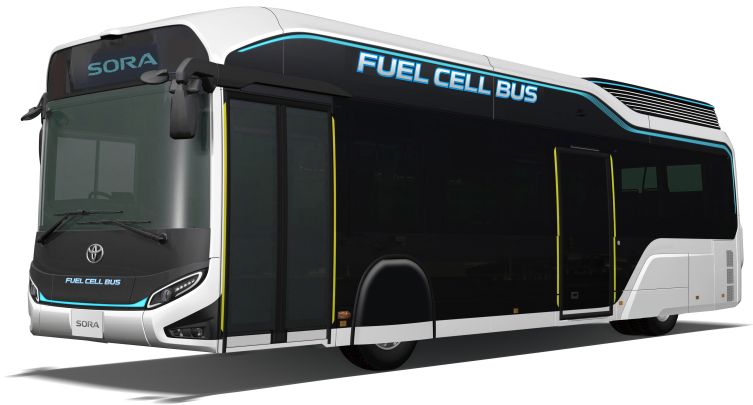
Tokyo Motor Show: Toyota Sora
The presentation of the Sora fuel cell bus previews Toyota’s plans to launch commercial sales of a model based on this concept. It expects to introduce more than 100 Sora, mainly in the Tokyo metropolitan area by 2020.
The name is an acronym for Sky, Ocean, River, Air – representing the earth’s water cycle.
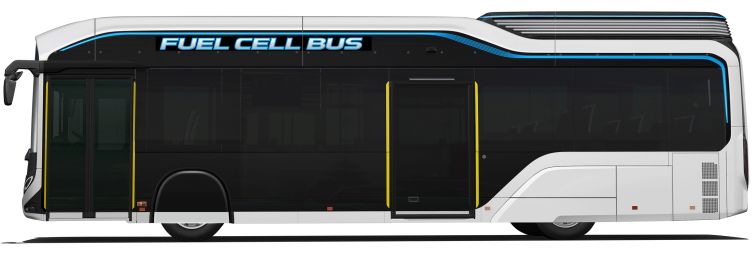
Development of the concept was guided by two ideas: to make best use of the characteristics of the fuel cell unit and to enhance the comfort of passengers. Toyota’s aim is to create a bus that works for the world and for people, is kind to the environment and can contribute to communities beyond its role as a means of transport.
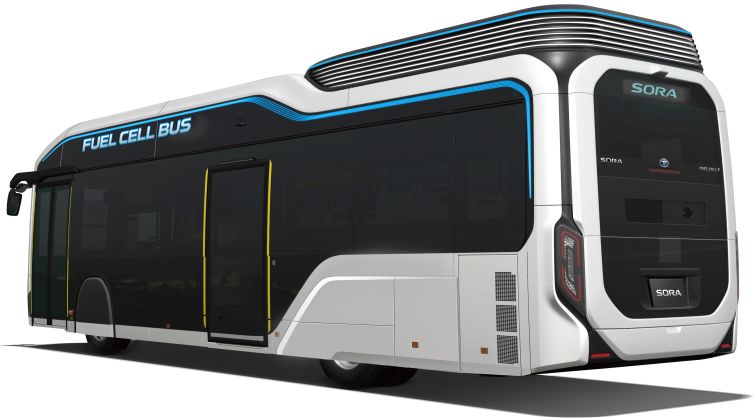
It uses the Toyota Fuel Cell System that was engineered for the Mirai fuel cell saloon. This delivers superior environmental performance, emitting no carbon dioxide or “substances of concern” (SoC) when operating. It is also equipped with a high-capacity external power supply system, with maximum output of 9kW and electricity supply of 235kWh. This allows the Sora to serve as an emergency power source, such as helping to provide relief and support in natural disasters.
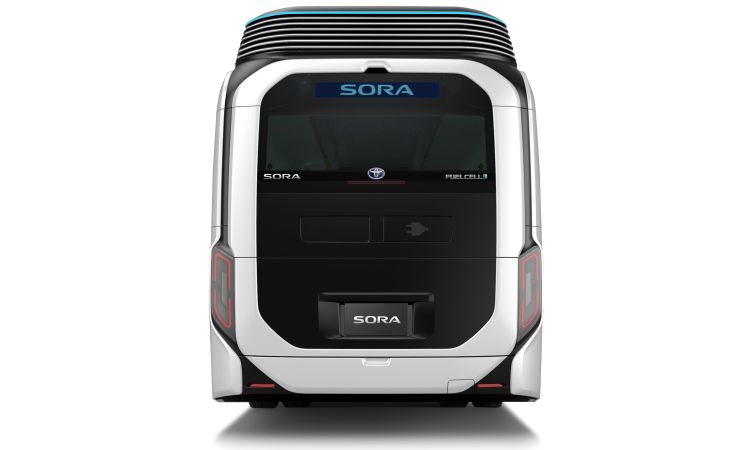
Because the bus is designed to be used by large and varying numbers of passengers at any given time, Toyota paid close attention to convenience, safety and peace of mind. The aim was to give all occupants a pleasant experience and encourage regular bus use.
Therefore the interior is fitted with horizontally arranged seats with an automatic storage mechanism to provide space for pushchairs, wheelchairs or extra seating, as required.
Eight high-definition cameras inside and outside the vehicle provide peripheral monitoring, detecting pedestrians and cyclists in the area around the vehicle and warning the driver with sound and image alerts.
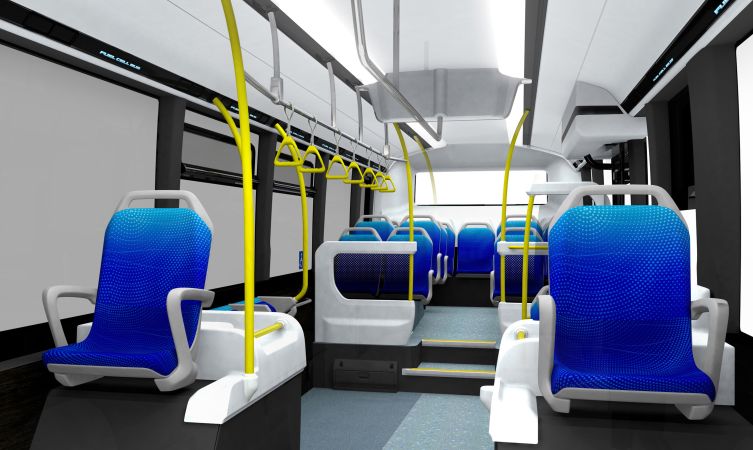
A control function suppresses sudden acceleration, so the bus pulls gently away from standstill, taking the safety of standing passengers into account. With no gearshifts required, there is no uncomfortable lurching effect.
Automatic arrival control detects a guideline on the road surface and uses automatic steering and deceleration to bring the bus to a halt with three to six centimetres clearance from the stop, and within a 10 centimetre range ahead of or behind the stop. This makes boarding or alighting from the bus easier for passengers using wheelchairs or with pushchairs.
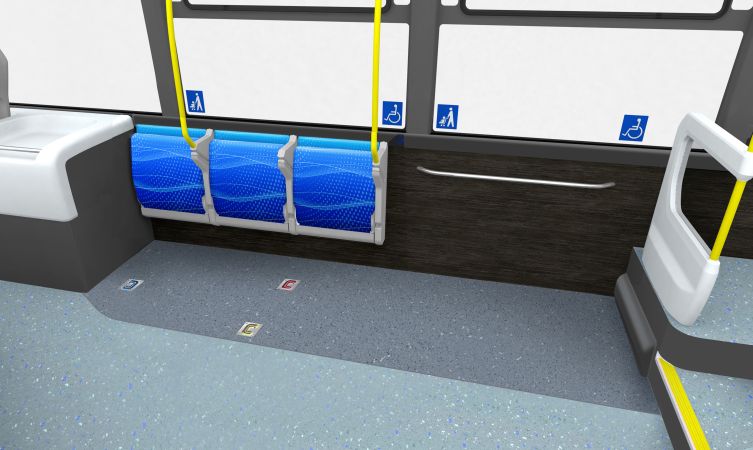
Bus transportation capability, speed, punctuality and convenience are boosted by vehicle-to-vehicle and vehicle-to-infrastructure communications. This is designed to support safe driving, together with systems that support bus convoys and priority at traffic signals.
The Sora’s design has a stereoscopic shape that is significantly different from the hexahedron – box shape – of conventional buses. This and the use of LEDs for the front and rear lights make it instantly recognisable.
| Overall length (mm) | 10,525 |
| Overall width (mm) | 2,490 |
| Overall height (mm) | 3,340 |
| Passenger capacity – seated | 22 |
| Passenger capacity – standing | 56 |
| Total passenger capacity | 78 |
| FC system | Toyota FC Stack (solid polymer electrolyte) |
| Maximum FC output | 153bhp/114kW x 2 units |
| Electric motor type | AC synchronous |
| Maximum motor output | 152bhp/113kW x 2 units |
| Maximum motor torque | 335Nm x 2 units |
| High pressure hydrogen tanks – number | 10 |
| Nominal working pressure | 70MPa |
| Tank internal volume (litres) | 600 |
| Drive battery – type | Nickel-metal hydride |
| External power supply system – max. output/supply | 9kW/235kWh |
Learn more: What is the first hydrogen fuel cell vehicle Toyota will display?
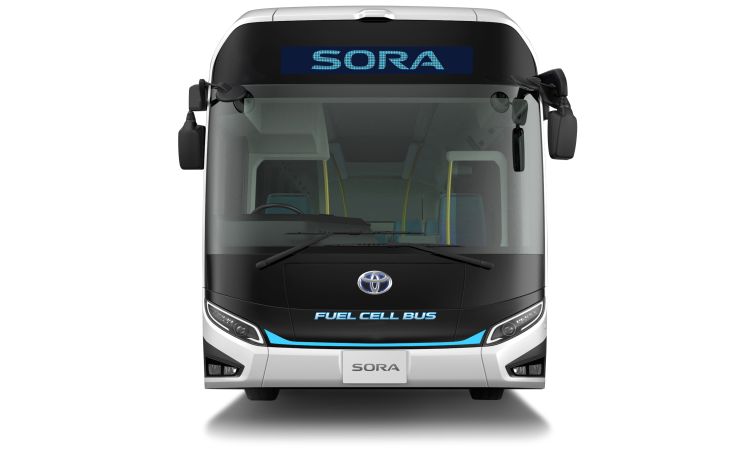

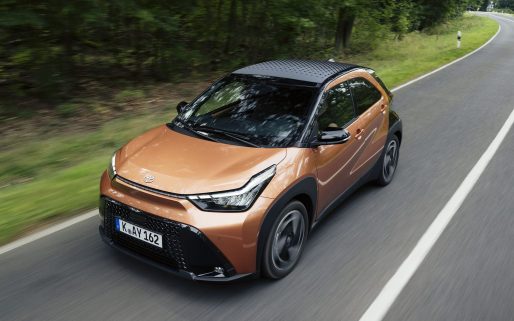
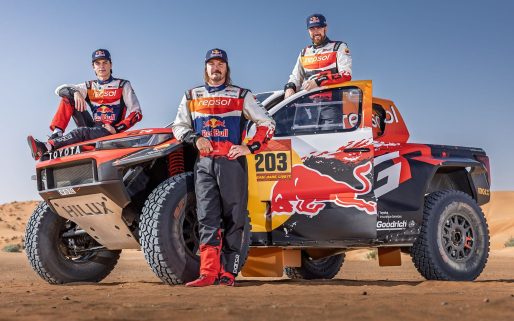
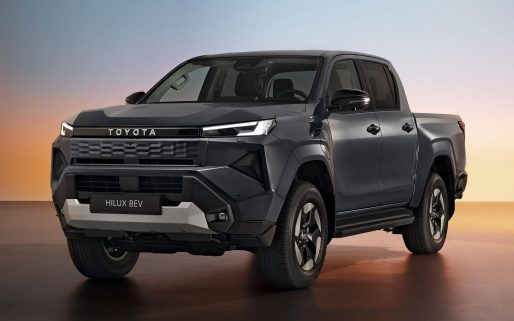
What is the maximum speed and distance on single fuel when tanks are fully filled with hydrogen
Hi there,
Thanks for getting in touch. The maximum speed is approximately 70 km/h and the cruising range distance is 200km or more.
How I can get more information about this bus? Thank you
Hi Andres, thanks for your question.
Please see this media article we have on the Toyota Sora bus here:
https://media.toyota.co.uk/toyota-equips-sora-hydrogen-fuel-cell-electric-bus-with-preventive-safety-features/
Thanks.